人教版(2019) 选择性必修 第一册Unit 1People of Achievement Assessing Your Progress & Project 课件(共29张PPT)
文档属性
| 名称 | 人教版(2019) 选择性必修 第一册Unit 1People of Achievement Assessing Your Progress & Project 课件(共29张PPT) |
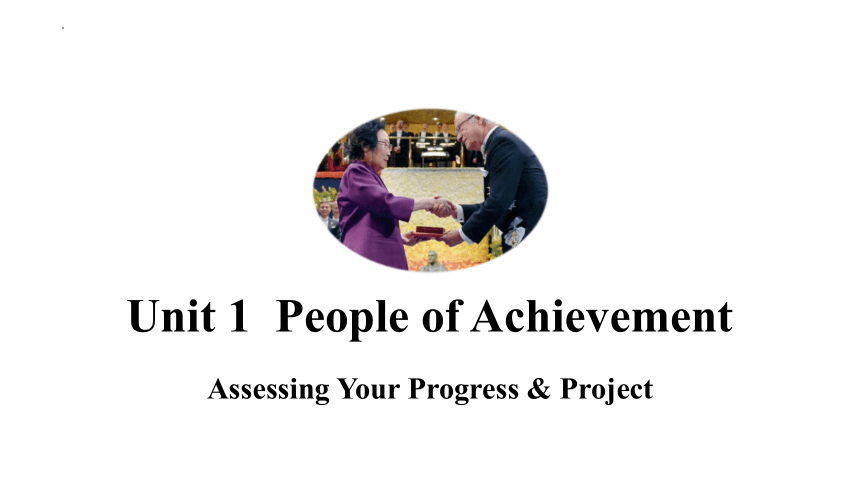
|
|
| 格式 | pptx | ||
| 文件大小 | 2.7MB | ||
| 资源类型 | 教案 | ||
| 版本资源 | 人教版(2019) | ||
| 科目 | 英语 | ||
| 更新时间 | 2023-08-02 17:21:06 | ||
图片预览

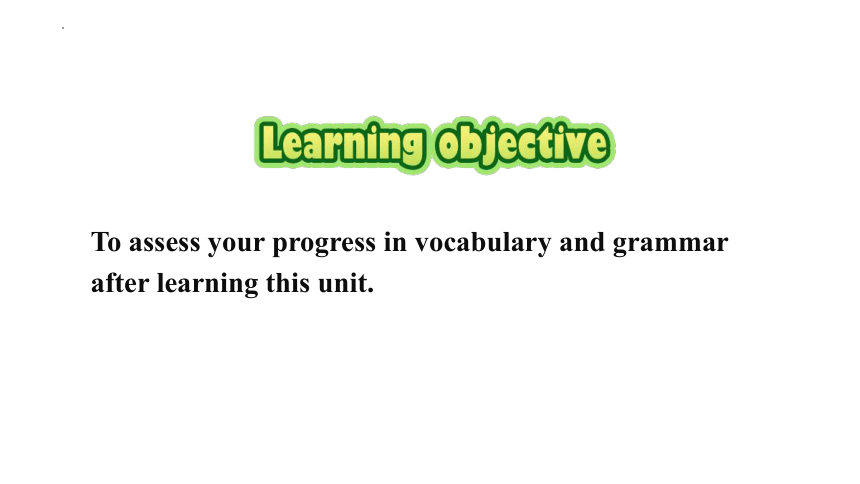
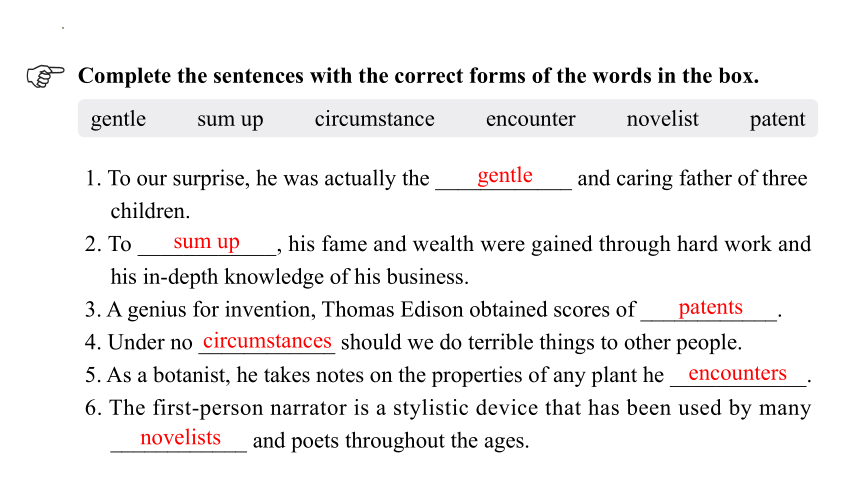
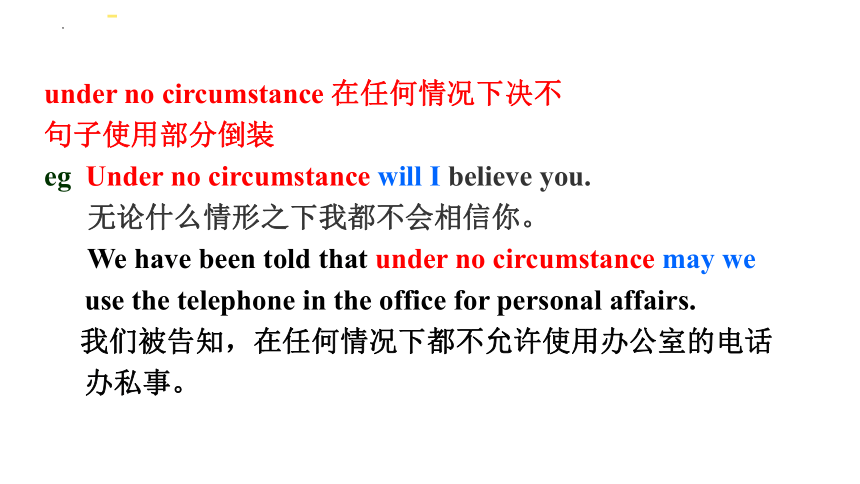
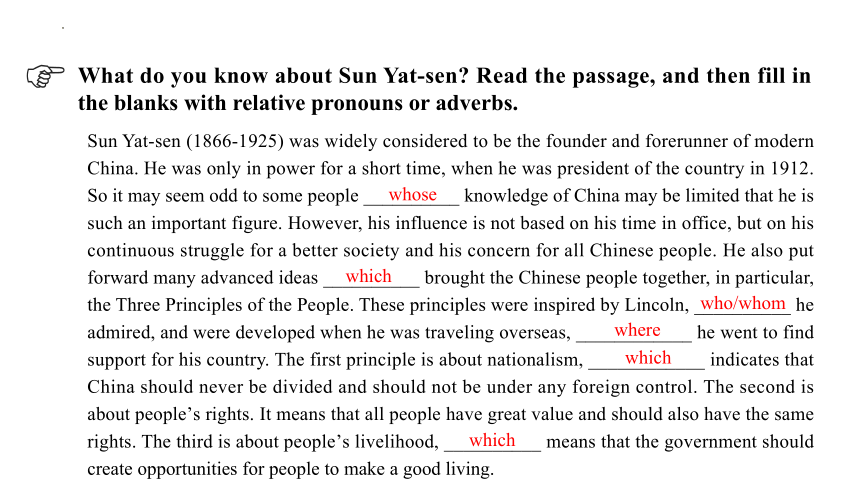
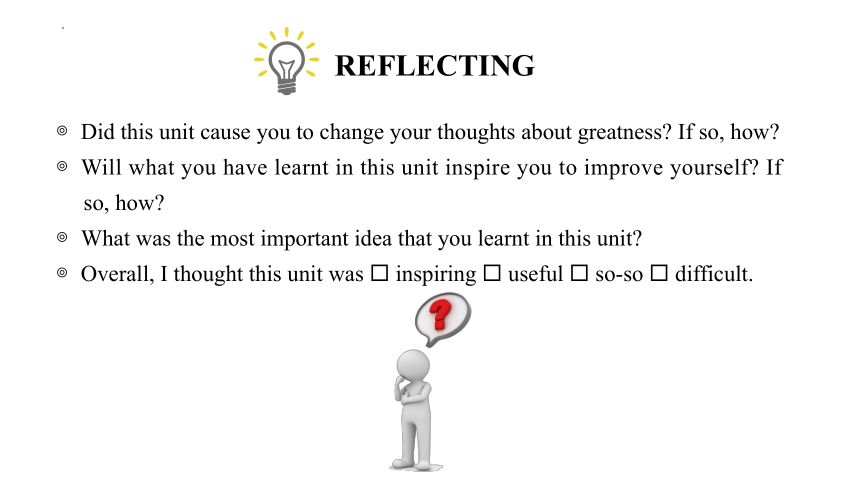
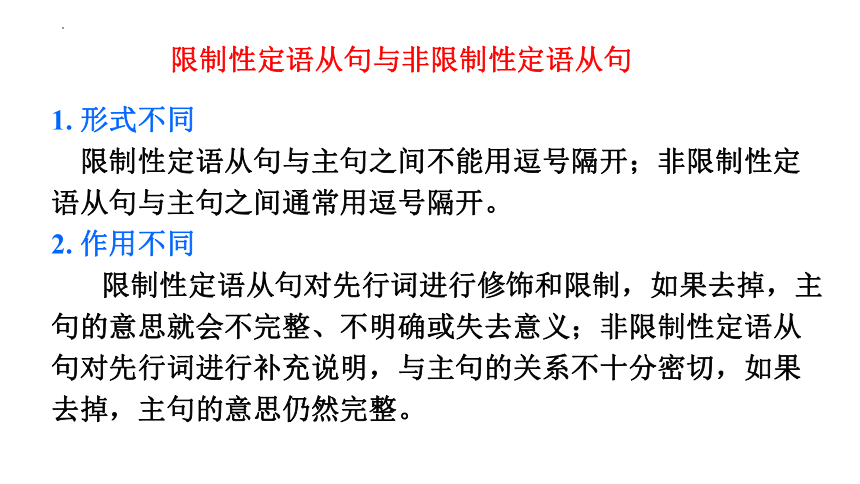
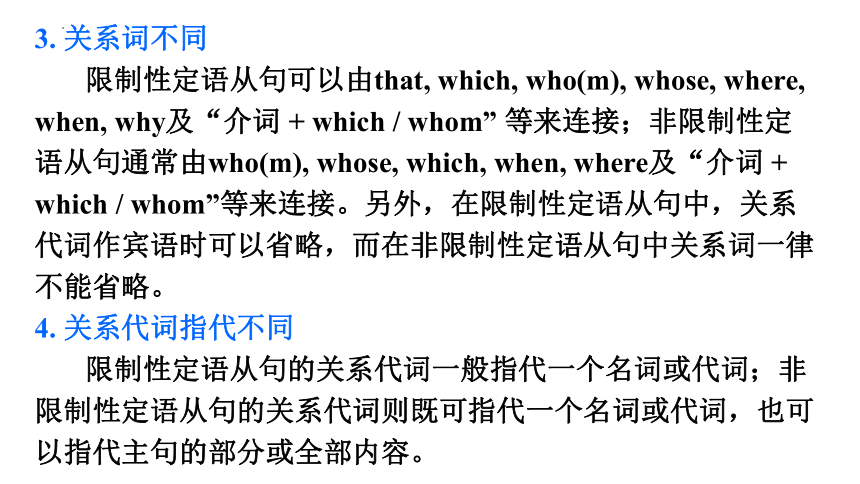

文档简介
(共29张PPT)
Unit 1 People of Achievement
Assessing Your Progress & Project
To assess your progress in vocabulary and grammar after learning this unit.
Complete the sentences with the correct forms of the words in the box.
gentle sum up circumstance encounter novelist patent
1. To our surprise, he was actually the ____________ and caring father of three children.
2. To ____________, his fame and wealth were gained through hard work and his in-depth knowledge of his business.
3. A genius for invention, Thomas Edison obtained scores of ____________.
4. Under no ____________ should we do terrible things to other people.
5. As a botanist, he takes notes on the properties of any plant he ____________.
6. The first-person narrator is a stylistic device that has been used by many ____________ and poets throughout the ages.
gentle
sum up
patents
circumstances
encounters
novelists
under no circumstance 在任何情况下决不
句子使用部分倒装
eg Under no circumstance will I believe you.
无论什么情形之下我都不会相信你。
We have been told that under no circumstance may we use the telephone in the office for personal affairs.
我们被告知,在任何情况下都不允许使用办公室的电话办私事。
Sun Yat-sen (1866-1925) was widely considered to be the founder and forerunner of modern China. He was only in power for a short time, when he was president of the country in 1912. So it may seem odd to some people __________ knowledge of China may be limited that he is such an important figure. However, his influence is not based on his time in office, but on his continuous struggle for a better society and his concern for all Chinese people. He also put forward many advanced ideas __________ brought the Chinese people together, in particular, the Three Principles of the People. These principles were inspired by Lincoln, __________ he admired, and were developed when he was traveling overseas, ____________ he went to find support for his country. The first principle is about nationalism, ____________ indicates that China should never be divided and should not be under any foreign control. The second is about people’s rights. It means that all people have great value and should also have the same rights. The third is about people’s livelihood, __________ means that the government should create opportunities for people to make a good living.
whose
which
who/whom
where
which
which
What do you know about Sun Yat-sen Read the passage, and then fill in
the blanks with relative pronouns or adverbs.
REFLECTING
Did this unit cause you to change your thoughts about greatness If so, how
Will what you have learnt in this unit inspire you to improve yourself If
so, how
What was the most important idea that you learnt in this unit
Overall, I thought this unit was inspiring useful so-so difficult.
限制性定语从句与非限制性定语从句
1. 形式不同
限制性定语从句与主句之间不能用逗号隔开;非限制性定语从句与主句之间通常用逗号隔开。
2. 作用不同
限制性定语从句对先行词进行修饰和限制,如果去掉,主句的意思就会不完整、不明确或失去意义;非限制性定语从句对先行词进行补充说明,与主句的关系不十分密切,如果去掉,主句的意思仍然完整。
3. 关系词不同
限制性定语从句可以由that, which, who(m), whose, where, when, why及“介词 + which / whom” 等来连接;非限制性定语从句通常由who(m), whose, which, when, where及“介词 + which / whom”等来连接。另外,在限制性定语从句中,关系代词作宾语时可以省略,而在非限制性定语从句中关系词一律不能省略。
4. 关系代词指代不同
限制性定语从句的关系代词一般指代一个名词或代词;非限制性定语从句的关系代词则既可指代一个名词或代词,也可以指代主句的部分或全部内容。
What do you know about Sun Yat-sen Read the
passage, and then fill in the blanks with relative pronouns or adverbs.
Sun Yat-sen (1866-1925) was widely considered to be the founder and forerunner of modern China. He was only in power for a short time, when he was president of the country in 1912. So it may seem odd to some people _______ knowledge of China may be limited that he is such an important figure. However, his influence is not based on his time in office, but on his continuous struggle for a better society and his concern for all Chinese people.
whose
He also put forward many advanced ideas ______ brought the Chinese people together, in particular, the Three Principles of the People. These principles were inspired by Lincoln, __________ he admired, and were developed when he was traveling overseas, _______ he went to find support for his country. The first principle is about nationalism, _______ indicates that China should never be divided and should not be under any foreign control. The second is about people’s rights It means that all people have great value and should also have the same rights. The third is about people’s livelihood, _______ means that the government should create opportunities for people to make a good living.
which
who/whom
where
which
which
be based on 以……为基础
struggle for 为……而斗争
put forward 提出(计划、建议、名字)
in particular 尤其; 特别
Three Principles of the People 三民主义
make a good living 好好生活
nationalism, people’s rights, people’s livelihood
民族、民权、民生
Did this unit cause you to change your thoughts about greatness If so, how
Will what you have learnt in this unit inspire you to improve yourself If so, how
What was the most important idea that you learnt in this unit
Overall, I thought this unit was
◎inspiring ◎useful ◎so-so ◎difficult.
Reflecting
acknowledge objective gradually remarkable
scientific apparently distinct committed gentle
workbook
Using words and expressions(p61)
1.Choose words from the box to make phrases. Some words can be used more than once.
1.a ___________ wind
2.a __________ supporter
3.a __________research institute
4.a ____________southern accent
gentle
committed
scientific
distinct
5.an ____________successful career
6.___________ facts
7.__________ achievements
8.__________accepted the change
9._____________their contributions
apparently
objective
remarkable
gradually
acknowledge
2.Complete the sentences with the correct forms of the
words in the box.
1. Apparently, the two plants have quite similar physical_________
2.Professor Stephen Hawking used a special vocal __________
3.Afterwards, the company filed a patent for a new chemical ______________.
4 Everyone was amazed at his grandfather's youthful ___________
circumstance objective collection appearance insist
consequence property device substance
properties
device
substance
appearance
5. The researchers____________the questionnaires back
from the patients.
6. I will try my best and work hard to achieve my ___________of studying economics at a top university.
7.If you ______ on doing so, you'll have to suffer the ___________
8.Banks have acknowledged that they need to pay more attention to customers' financial ______________ when evaluating loan applications.
collected
objective
insist
consequences
circumstances
Translate the sentences into English using the words
and phrases in brackets.
1.在递交申请六个月之后,他终于获得了发明专利。
( obtain, patent)
2.当评估这个研究项目的时候,他们遇到了许多数据上的困难。
( evaluate,encounter)
After submitting the application for six months, he finally obtained the invention patent.
When evaluating the research project, they encountered many
difficulties with the data.
3.她被新上任的总统邀请出任大使。(take up a position,
come to power)
4.他在科学研究方面不但有天赋而且很努力,21岁时就已经在学术领域非常有名了。( genius, academic field)
5.考虑到非常危险,他坚持认为他们不应该在台风天气冒生命危险外出。( extraordinary、insist)
She was invited by the president, who had just come to power,
to take up a position as an ambassador .
He was not only a genius but also hard working in scientific research,
someone who had already been famous in the academic field since 21.
Considering the extraordinary danger, he insisted they should not
risk their lives by going out during the typhoon.
Using Structures(p62)
1.Choose the words in the box to complete the sentences.
who whom which whose when where
in/of/for which of whom
1. Some people always talk loudly in public,__________is really annoying.
2 .Mr Smith,___________you spoke to, is our new professor.
3. Please come back at four o'clock,__________your herbal medicine will be ready.
4 .What do you want to write about these people,_________stories I have just told you
which
whom/who
when
whose
5. Have you been to the Louvre Museum,_____________
you can see the MonaLisa on display
6. There are 45 students in our class,out_________only 10 are taking an optional art course.
7 .Her mother works in a company,_____________employees are all women.
8. It is vital to learn to use these software programmes, both __________can help you with collection and evaluation.
where/in which
of whom
where/in which
of which
2.Decide whether the sentences are right or wrong.
Correct them where necessary.
1.Please write down these phrases, all of them will be useful in your writing.
2.As a consequence of sending in his application late, he did not get a patent for his invention, that was not surprising at all.
3.The researchers are evaluating thousands of plants, which have distinct medical properties.
4.The gentle old man is the only person, whom I can trust.
which
which
√
that
5. Have you done all what you can to help the people in need
6 .Is this the botanical institute where you visited last week
that
which/that
Project
— Prepare a book report
Activate and employ all the skills and knowledge you have learnt in this unit.
Learning objectives
Have you ever read a biography or an autobiography of a great person Would you recommend this book Why or why not
Which great person would you like to read more about
Where can you find recommendations for good biographies or autobiographies
Discuss these questions in groups.
Use the examples to help you.
Write about how the book makes you feel or think about that person.
Write about your overall feelings about the book and its quality.
Give your opinion: Should others read this book as well Why or why not
Choose a biography or autobiography of a great person. Read the book,
and then write a book report. Keep these points in mind:
Present your book report to your group. Answer any questions about the
book.
The Story of My Life, by Helen Keller, 1903
Helen Keller (1880-1968) was one of the most motivational figures in the 20th century. In many ways, she stood in the face of a great challenge, losing her sight and hearing at a very young age, and against all odds led a successful and long life. Helen Keller wrote this biography herself at the age of 22. She wrote at first about her family before her illness, and then continued with documenting her thoughts and feelings after the illness that caused her to become unable to hear and see. It is Helen Keller’s strength of character and determination demonstrated in this book that inspires me most. Anyone interested about her and how to overcome challenges in life should read this book.
Sample
Read book reports done by your classmates, choose the best one in your eyes, and give your reasons.
Homework
Unit 1 People of Achievement
Assessing Your Progress & Project
To assess your progress in vocabulary and grammar after learning this unit.
Complete the sentences with the correct forms of the words in the box.
gentle sum up circumstance encounter novelist patent
1. To our surprise, he was actually the ____________ and caring father of three children.
2. To ____________, his fame and wealth were gained through hard work and his in-depth knowledge of his business.
3. A genius for invention, Thomas Edison obtained scores of ____________.
4. Under no ____________ should we do terrible things to other people.
5. As a botanist, he takes notes on the properties of any plant he ____________.
6. The first-person narrator is a stylistic device that has been used by many ____________ and poets throughout the ages.
gentle
sum up
patents
circumstances
encounters
novelists
under no circumstance 在任何情况下决不
句子使用部分倒装
eg Under no circumstance will I believe you.
无论什么情形之下我都不会相信你。
We have been told that under no circumstance may we use the telephone in the office for personal affairs.
我们被告知,在任何情况下都不允许使用办公室的电话办私事。
Sun Yat-sen (1866-1925) was widely considered to be the founder and forerunner of modern China. He was only in power for a short time, when he was president of the country in 1912. So it may seem odd to some people __________ knowledge of China may be limited that he is such an important figure. However, his influence is not based on his time in office, but on his continuous struggle for a better society and his concern for all Chinese people. He also put forward many advanced ideas __________ brought the Chinese people together, in particular, the Three Principles of the People. These principles were inspired by Lincoln, __________ he admired, and were developed when he was traveling overseas, ____________ he went to find support for his country. The first principle is about nationalism, ____________ indicates that China should never be divided and should not be under any foreign control. The second is about people’s rights. It means that all people have great value and should also have the same rights. The third is about people’s livelihood, __________ means that the government should create opportunities for people to make a good living.
whose
which
who/whom
where
which
which
What do you know about Sun Yat-sen Read the passage, and then fill in
the blanks with relative pronouns or adverbs.
REFLECTING
Did this unit cause you to change your thoughts about greatness If so, how
Will what you have learnt in this unit inspire you to improve yourself If
so, how
What was the most important idea that you learnt in this unit
Overall, I thought this unit was inspiring useful so-so difficult.
限制性定语从句与非限制性定语从句
1. 形式不同
限制性定语从句与主句之间不能用逗号隔开;非限制性定语从句与主句之间通常用逗号隔开。
2. 作用不同
限制性定语从句对先行词进行修饰和限制,如果去掉,主句的意思就会不完整、不明确或失去意义;非限制性定语从句对先行词进行补充说明,与主句的关系不十分密切,如果去掉,主句的意思仍然完整。
3. 关系词不同
限制性定语从句可以由that, which, who(m), whose, where, when, why及“介词 + which / whom” 等来连接;非限制性定语从句通常由who(m), whose, which, when, where及“介词 + which / whom”等来连接。另外,在限制性定语从句中,关系代词作宾语时可以省略,而在非限制性定语从句中关系词一律不能省略。
4. 关系代词指代不同
限制性定语从句的关系代词一般指代一个名词或代词;非限制性定语从句的关系代词则既可指代一个名词或代词,也可以指代主句的部分或全部内容。
What do you know about Sun Yat-sen Read the
passage, and then fill in the blanks with relative pronouns or adverbs.
Sun Yat-sen (1866-1925) was widely considered to be the founder and forerunner of modern China. He was only in power for a short time, when he was president of the country in 1912. So it may seem odd to some people _______ knowledge of China may be limited that he is such an important figure. However, his influence is not based on his time in office, but on his continuous struggle for a better society and his concern for all Chinese people.
whose
He also put forward many advanced ideas ______ brought the Chinese people together, in particular, the Three Principles of the People. These principles were inspired by Lincoln, __________ he admired, and were developed when he was traveling overseas, _______ he went to find support for his country. The first principle is about nationalism, _______ indicates that China should never be divided and should not be under any foreign control. The second is about people’s rights It means that all people have great value and should also have the same rights. The third is about people’s livelihood, _______ means that the government should create opportunities for people to make a good living.
which
who/whom
where
which
which
be based on 以……为基础
struggle for 为……而斗争
put forward 提出(计划、建议、名字)
in particular 尤其; 特别
Three Principles of the People 三民主义
make a good living 好好生活
nationalism, people’s rights, people’s livelihood
民族、民权、民生
Did this unit cause you to change your thoughts about greatness If so, how
Will what you have learnt in this unit inspire you to improve yourself If so, how
What was the most important idea that you learnt in this unit
Overall, I thought this unit was
◎inspiring ◎useful ◎so-so ◎difficult.
Reflecting
acknowledge objective gradually remarkable
scientific apparently distinct committed gentle
workbook
Using words and expressions(p61)
1.Choose words from the box to make phrases. Some words can be used more than once.
1.a ___________ wind
2.a __________ supporter
3.a __________research institute
4.a ____________southern accent
gentle
committed
scientific
distinct
5.an ____________successful career
6.___________ facts
7.__________ achievements
8.__________accepted the change
9._____________their contributions
apparently
objective
remarkable
gradually
acknowledge
2.Complete the sentences with the correct forms of the
words in the box.
1. Apparently, the two plants have quite similar physical_________
2.Professor Stephen Hawking used a special vocal __________
3.Afterwards, the company filed a patent for a new chemical ______________.
4 Everyone was amazed at his grandfather's youthful ___________
circumstance objective collection appearance insist
consequence property device substance
properties
device
substance
appearance
5. The researchers____________the questionnaires back
from the patients.
6. I will try my best and work hard to achieve my ___________of studying economics at a top university.
7.If you ______ on doing so, you'll have to suffer the ___________
8.Banks have acknowledged that they need to pay more attention to customers' financial ______________ when evaluating loan applications.
collected
objective
insist
consequences
circumstances
Translate the sentences into English using the words
and phrases in brackets.
1.在递交申请六个月之后,他终于获得了发明专利。
( obtain, patent)
2.当评估这个研究项目的时候,他们遇到了许多数据上的困难。
( evaluate,encounter)
After submitting the application for six months, he finally obtained the invention patent.
When evaluating the research project, they encountered many
difficulties with the data.
3.她被新上任的总统邀请出任大使。(take up a position,
come to power)
4.他在科学研究方面不但有天赋而且很努力,21岁时就已经在学术领域非常有名了。( genius, academic field)
5.考虑到非常危险,他坚持认为他们不应该在台风天气冒生命危险外出。( extraordinary、insist)
She was invited by the president, who had just come to power,
to take up a position as an ambassador .
He was not only a genius but also hard working in scientific research,
someone who had already been famous in the academic field since 21.
Considering the extraordinary danger, he insisted they should not
risk their lives by going out during the typhoon.
Using Structures(p62)
1.Choose the words in the box to complete the sentences.
who whom which whose when where
in/of/for which of whom
1. Some people always talk loudly in public,__________is really annoying.
2 .Mr Smith,___________you spoke to, is our new professor.
3. Please come back at four o'clock,__________your herbal medicine will be ready.
4 .What do you want to write about these people,_________stories I have just told you
which
whom/who
when
whose
5. Have you been to the Louvre Museum,_____________
you can see the MonaLisa on display
6. There are 45 students in our class,out_________only 10 are taking an optional art course.
7 .Her mother works in a company,_____________employees are all women.
8. It is vital to learn to use these software programmes, both __________can help you with collection and evaluation.
where/in which
of whom
where/in which
of which
2.Decide whether the sentences are right or wrong.
Correct them where necessary.
1.Please write down these phrases, all of them will be useful in your writing.
2.As a consequence of sending in his application late, he did not get a patent for his invention, that was not surprising at all.
3.The researchers are evaluating thousands of plants, which have distinct medical properties.
4.The gentle old man is the only person, whom I can trust.
which
which
√
that
5. Have you done all what you can to help the people in need
6 .Is this the botanical institute where you visited last week
that
which/that
Project
— Prepare a book report
Activate and employ all the skills and knowledge you have learnt in this unit.
Learning objectives
Have you ever read a biography or an autobiography of a great person Would you recommend this book Why or why not
Which great person would you like to read more about
Where can you find recommendations for good biographies or autobiographies
Discuss these questions in groups.
Use the examples to help you.
Write about how the book makes you feel or think about that person.
Write about your overall feelings about the book and its quality.
Give your opinion: Should others read this book as well Why or why not
Choose a biography or autobiography of a great person. Read the book,
and then write a book report. Keep these points in mind:
Present your book report to your group. Answer any questions about the
book.
The Story of My Life, by Helen Keller, 1903
Helen Keller (1880-1968) was one of the most motivational figures in the 20th century. In many ways, she stood in the face of a great challenge, losing her sight and hearing at a very young age, and against all odds led a successful and long life. Helen Keller wrote this biography herself at the age of 22. She wrote at first about her family before her illness, and then continued with documenting her thoughts and feelings after the illness that caused her to become unable to hear and see. It is Helen Keller’s strength of character and determination demonstrated in this book that inspires me most. Anyone interested about her and how to overcome challenges in life should read this book.
Sample
Read book reports done by your classmates, choose the best one in your eyes, and give your reasons.
Homework
